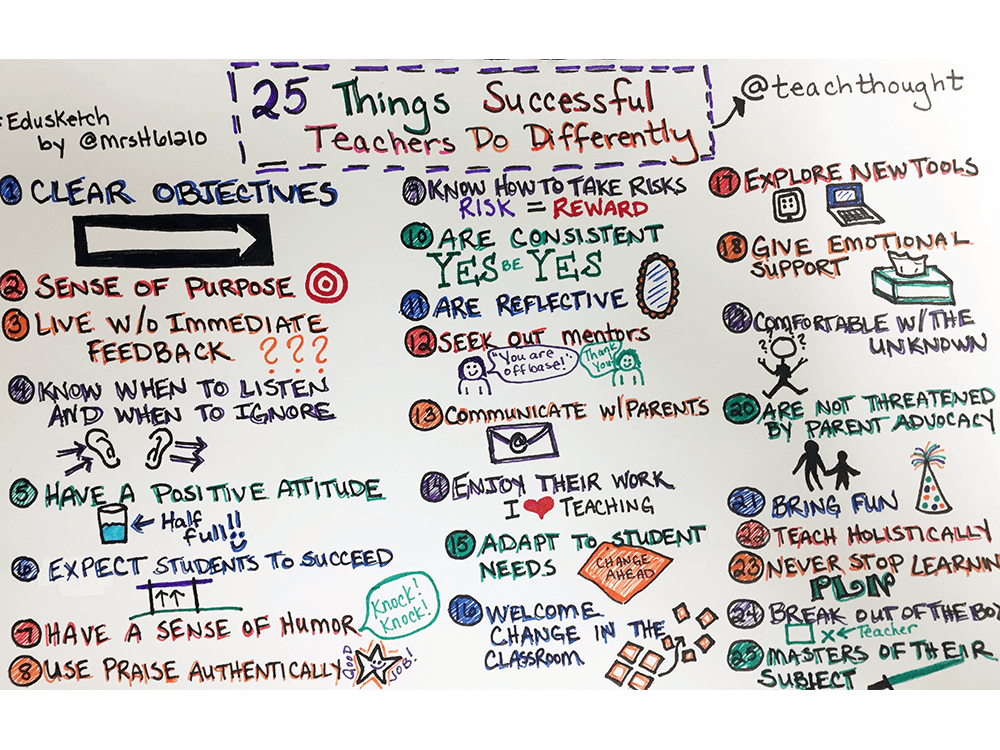By Maria Papagiannopoulou,
Teaching at any level is a challenging occupation: students can be demanding, the grading often feels endless, and talking in front of a room full of people gives many teachers anxiety. However, like any other worthwhile professional pursuit, teaching has a learning curve. Once you’ve learned to feel comfortable in front of your students, teaching will become a fun, rewarding job. You can become a successful teacher (at any pedagogical level) by preparing ahead of time, successfully managing your classroom, and engaging directly with students. In this article, I have chosen to refer to how to become a successful educator in general in the future, in order for teachers to get improved, and thus, the teaching field to be developed overall. There are many factors that make an educator successful in their career:
I – Believe in your students’ potential
The success of an educator is determined by the success of their students. Always have high expectations for your children. Make certain you believe in their abilities to succeed and push them to their limits.
Encourage them to try again and work harder, even if they fail. This method assists you in luring people out of their comfort zones so that they can chase success knowing that you will be there to catch them if they fall down.
II – Be in a good attitude and energetic
Did you know that most students prefer to share their academic concerns with amusing and enthusiastic teachers over grumpy and “always serious” ones? Yes! Your approachability is mostly determined by how you hold yourself.
Make an effort to smile whenever you speak with your students, tell a joke or two, and so on. This helps to alleviate any anxiety or fear that students may have when contacting you for assistance.
III – Have knowledge in your field: Teaching
Having knowledge of your subject is also a must for a successful teaching profession. Even the most successful teachers aren’t experts on everything. However, the more you know, the easier it will be to teach your students and respond to their queries quickly. You can also do more with technology, such as create intriguing technology-based activities and conduct online lessons.
Learning never stops, which means that as a teacher, you must constantly feed your mind with new ideas. Remember that students prefer to consult lecturers who are known to have extensive experience in a particular topic. Knowledge indicates authenticity.
IV – Creativity and thinking outside of the context are a must!
The methods you employ to convey knowledge to your students must be innovative in order to hold their interest. Make each learning lesson as exciting as possible for them. This not only makes learning fun for children, but also ensures that they are fully engaged in each lesson and eagerly anticipating the next.

V – Take risks while teaching
“No Risk, No Reward!” they say. Taking chances is an important aspect of one’s success. Your students are watching and observing everything you do. As a result, if you take chances by attempting new things every now and again, they’ll have the confidence to do the same. This encourages children to break free from their shells and venture into the unknown, fostering their risk-taking abilities and eventual success.
VI – Communication and consistency
Communication may be a capable learning device. Whether it’s with a teacher or with their parent, having a dialogue assists you to pass basic data and suggestions that will be pivotal to the student’s success.
To be effective at educating, you should be coherent and unfaltering. If you say something, stick to it! If you say you’re getting to do something, make sure you see it through! In case you set rules, stand solidly by them! Dodge making special cases or playing favorites.
VII – Set goals and listen to your students’ needs
Failing an exam does not continuously cruel that the student fizzled to study for it. In some cases, it may be due to outside variables. That’s why fruitful educators continuously take their time to tune in and to exhort their students. Continuously treat them as if they were your own kids. That way, they’ll continuously confide in you in case something is preventing their success in a course.
To be effective at teaching, you should watch all your students independently, isolating their strengths from their weaknesses. This will assist you to tailor methodologies, pointed at helping them to saddle their qualities and to overcome their weaknesses. A teacher’s success is mostly determined by the success of their students, as we mentioned at the beginning of this article. Therefore, you need to set objectives and goals together with your learners. After that, work with them towards accomplishing these objectives together as a group. After all, teamwork is dreamwork!
References
- How to Manage a Class Effectively, futureeducators, Available here
- 12 Things Successful Teachers Do, futureeducators, Available here
- 25 Things Successful Teachers Do Differently, teachthought, Available here




